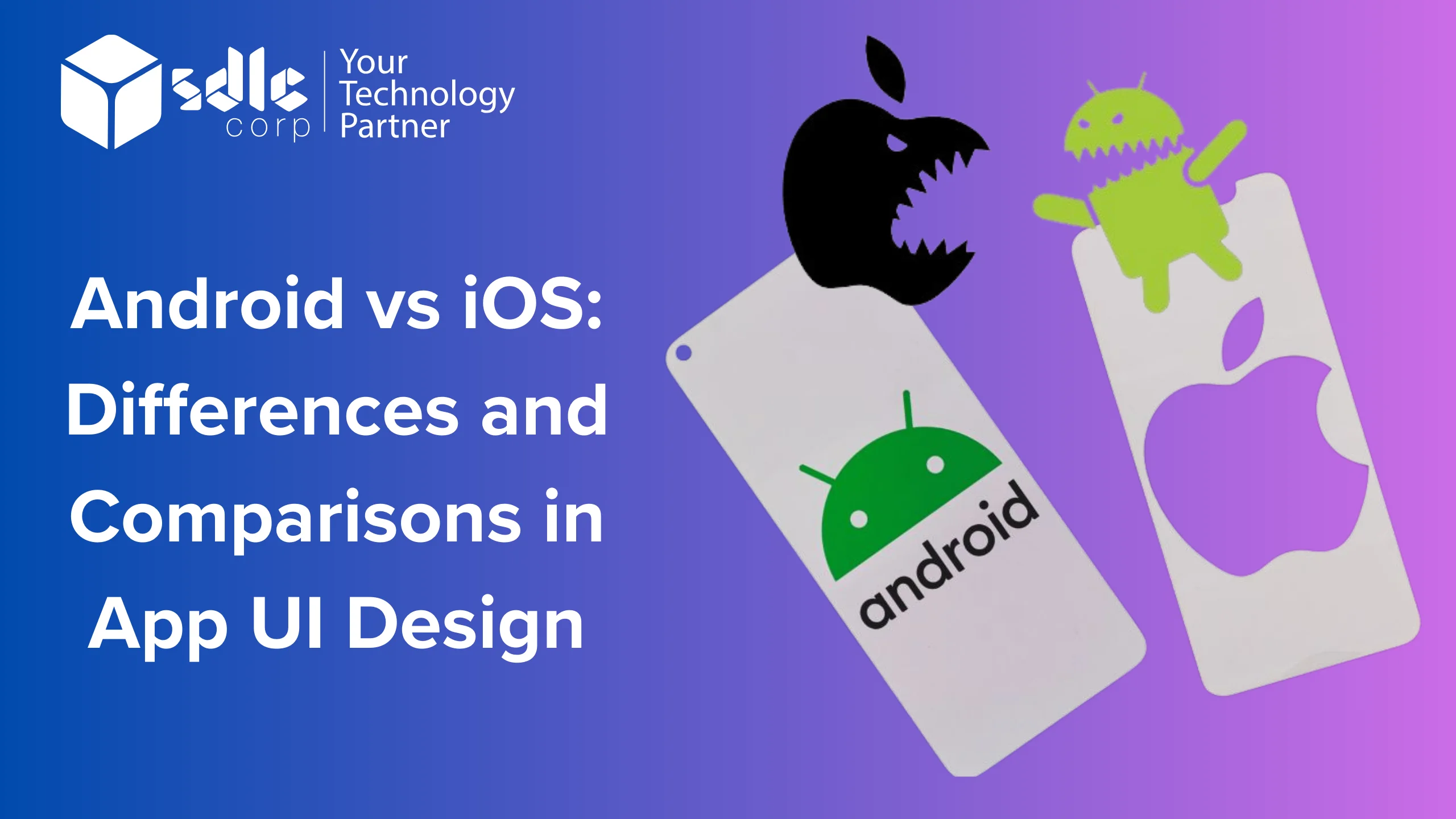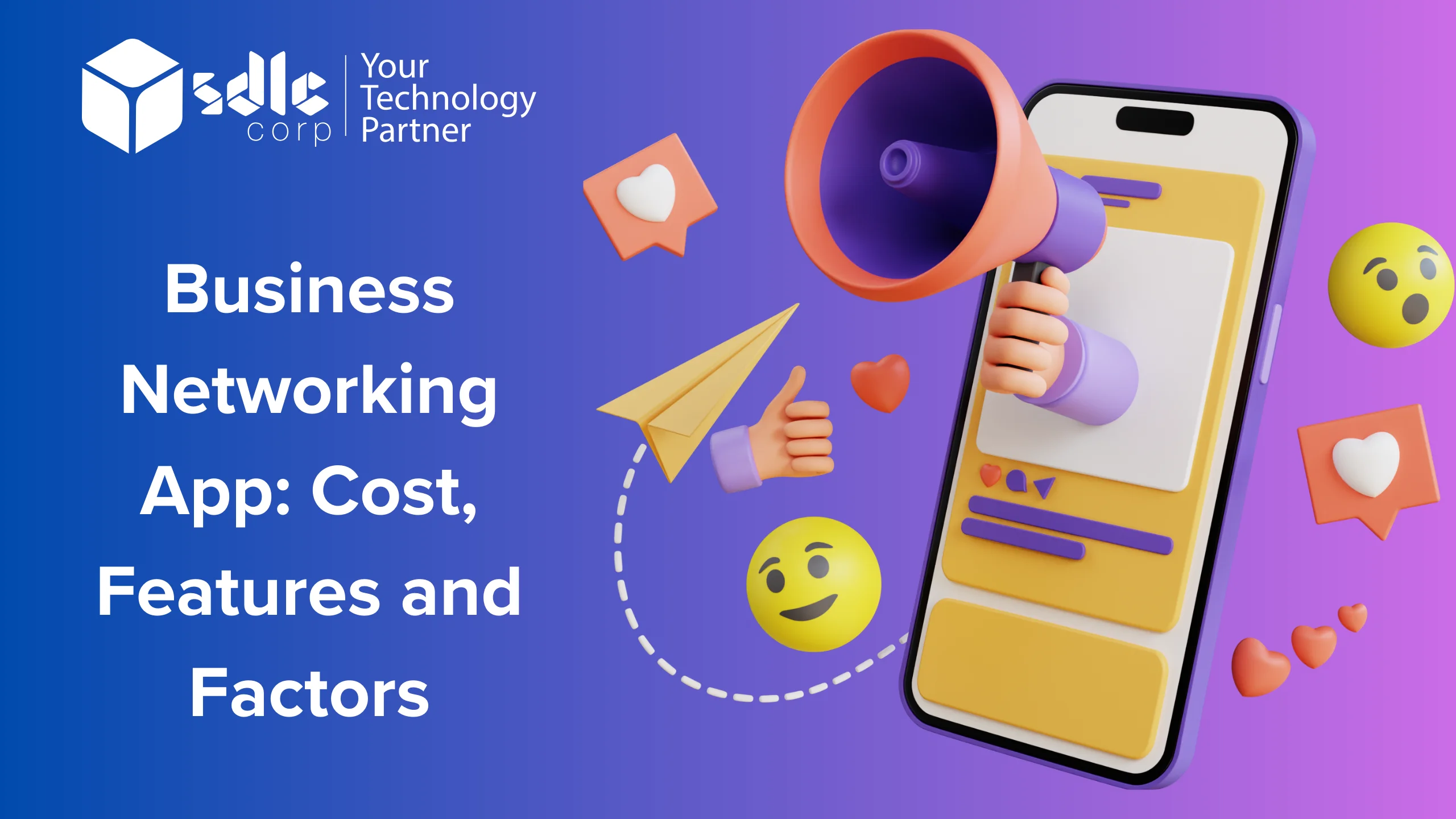Introduction
Today’s Digital Transformation With Mobile Apps has become essential to business evolution in today’s fast-paced digital landscape. Mobile apps have transformed how we communicate, shop, and consume information and have revolutionized how businesses operate. They are no longer limited to personal use; organizations leverage mobile apps to streamline operations, drive growth, and improve customer engagement.
When exploring the realm of digital transformation, you will encounter various frameworks, tools, and solutions offered by Mobile Apps Development Companies and Web3 App Development Companies that assist in reshaping business processes and workflows. From Custom Blockchain Development to Enterprise Blockchain Development and even advanced Blockchain Consulting Services, these technologies play a critical role in digital transformation.
However, before embarking on this transformation journey, visionary leaders must fully understand the potential of emerging technologies like Blockchain Development, Smart Contract Development, and Web3 Development Solutions. Choosing the right technologies, including those used by Mobile App Developers, can significantly accelerate your organization’s digital transformation.
This blog will explore how mobile apps can enhance your digital transformation efforts, whether you are considering blockchain integration or mobile app innovation, even in sectors like gaming. With the help of a Game Development Company or a skilled Game Developer, the right digital strategy can propel your business forward.
Let us begin by defining what Digital Transformation truly entails.
What Exactly is Digital Transformation?
In reality, there is no single, authorized definition of enterprise digital transformation. Instead, it is a comprehensive set of technologies and techniques that enables the seamless transition of analog operations to the digital medium.
Digital transformation not only transforms your business but also provides several commercial benefits. It also supports organizations in retaining existing consumers by providing prudent services while developing novel revenue-generating options. The essential point is that such benefits may be obtained cheaply, making digital transformation a compelling offer for any organization.
However, there is a widespread belief that expanding technology can improve organizational operations and all stakeholders’ experiences, but this is not a Digital Transformation. Digital transformation extends beyond technological innovation. A broad cultural shift allows businesses to embrace an innovative culture to learn from mistakes and question the status quo.
Not only does enterprise digital transformation combine multiple aspects of your organization, but it also transforms how you give value to your consumers. In addition, it enables businesses to create new business models, obtain a competitive advantage, and reinvent their leadership strategy.
The Advantages of a Mobile App for Your Business
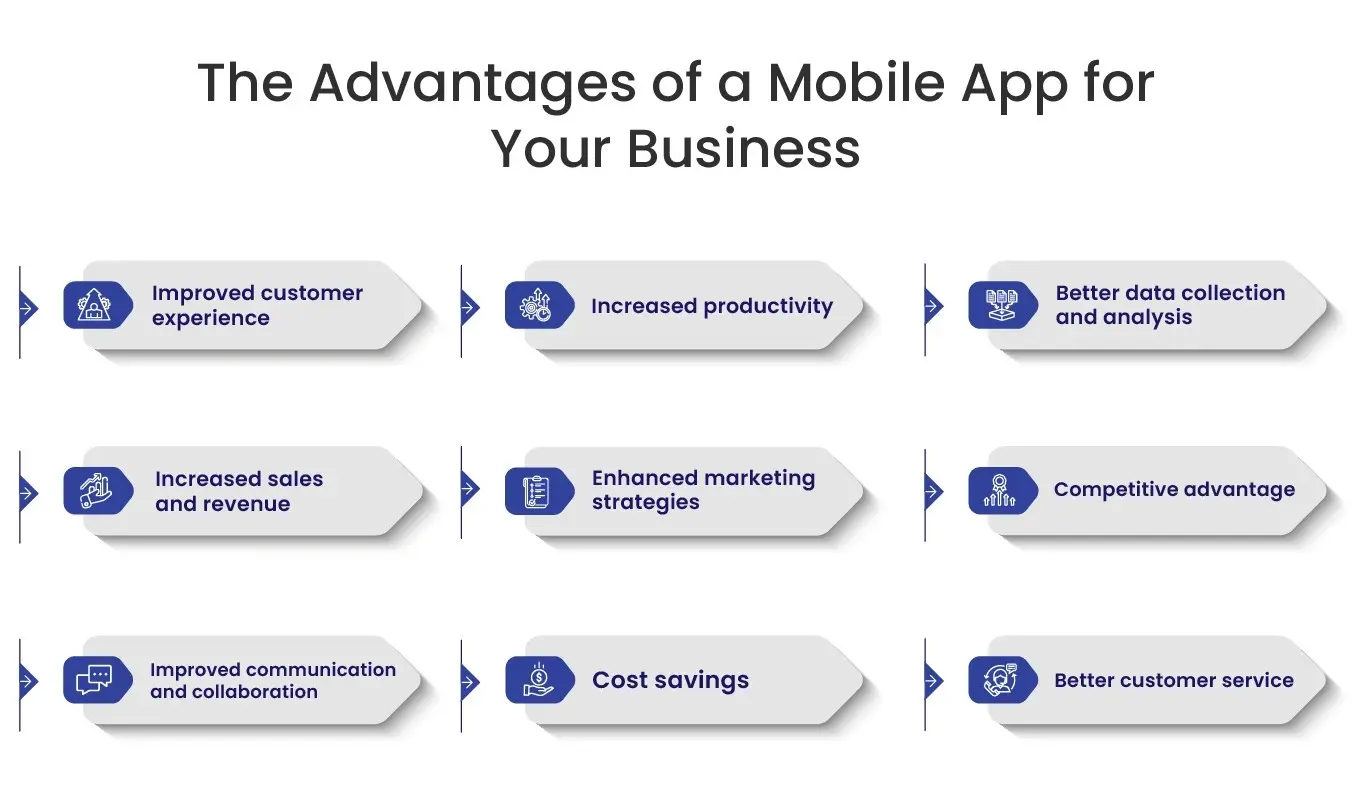
1. Improved Customer Experience
Mobile apps can provide a seamless and personalized experience to your customers. A mobile app lets customers easily access your products or services, make purchases, track orders, and receive notifications. This can increase your company’s income and growth by increasing consumer happiness and loyalty.
2. Increased Productivity
Mobile apps can streamline your business processes and increase productivity. For example, a mobile app can automate scheduling appointments, tracking inventory, and generating reports. This can free up your employees’ time, allowing them to focus on more critical tasks and increasing efficiency.
Partner with a Leading Mobile App Development Company Today!

3. Better Data Collection and Analysis
Mobile apps can collect valuable data on customer behavior, preferences, and purchasing patterns. This information can be used to make sound marketing, product development, and customer service decisions. Mobile apps can also provide real-time analytics, allowing you to respond quickly to changes in customer behavior and market trends.
Explore our other insights!
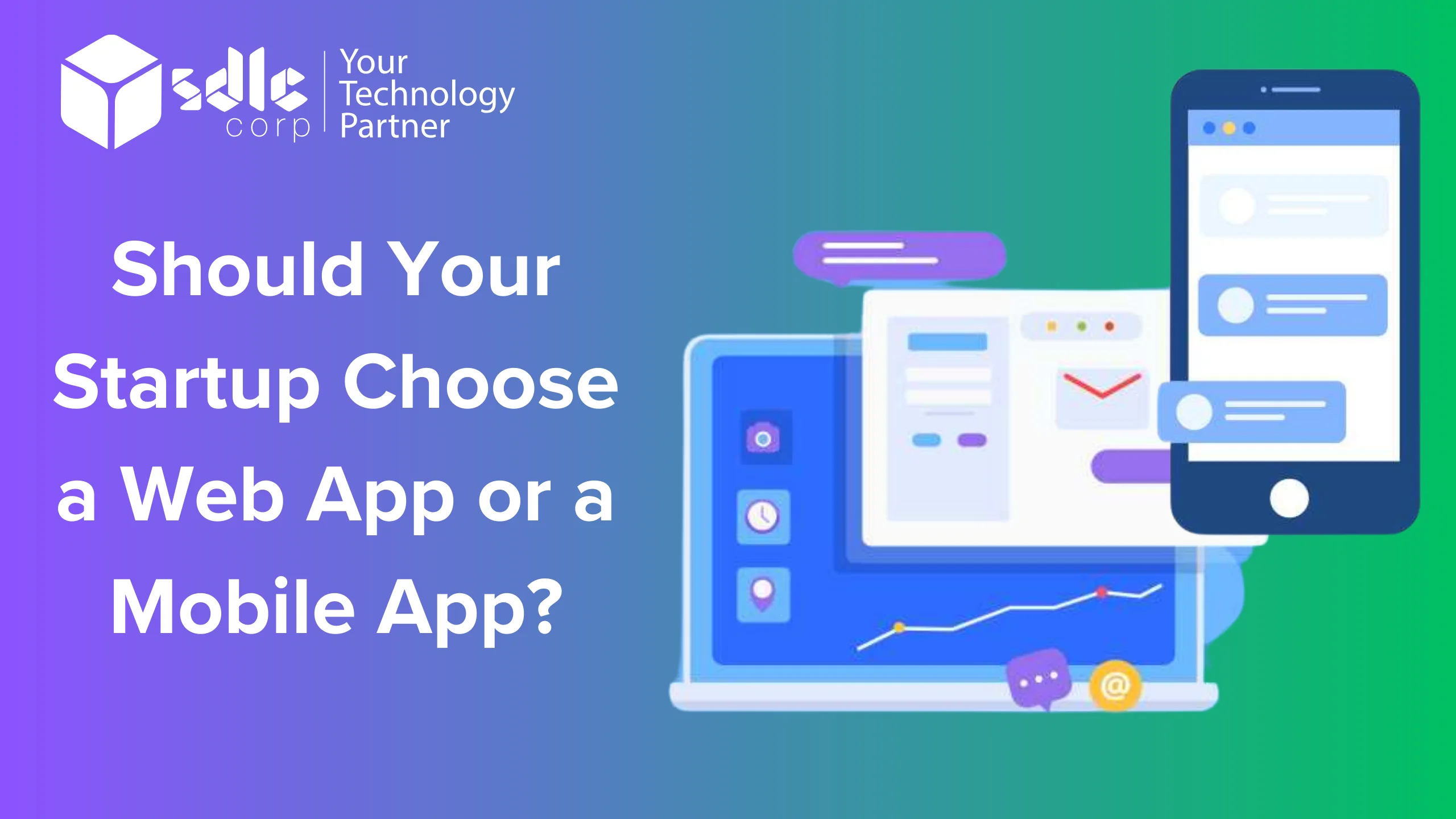
Should Your Startup Choose a Web App or a Mobile App?
Introduction In today’s digital age, startups must make a crucial decision when developing their products: Should they focus
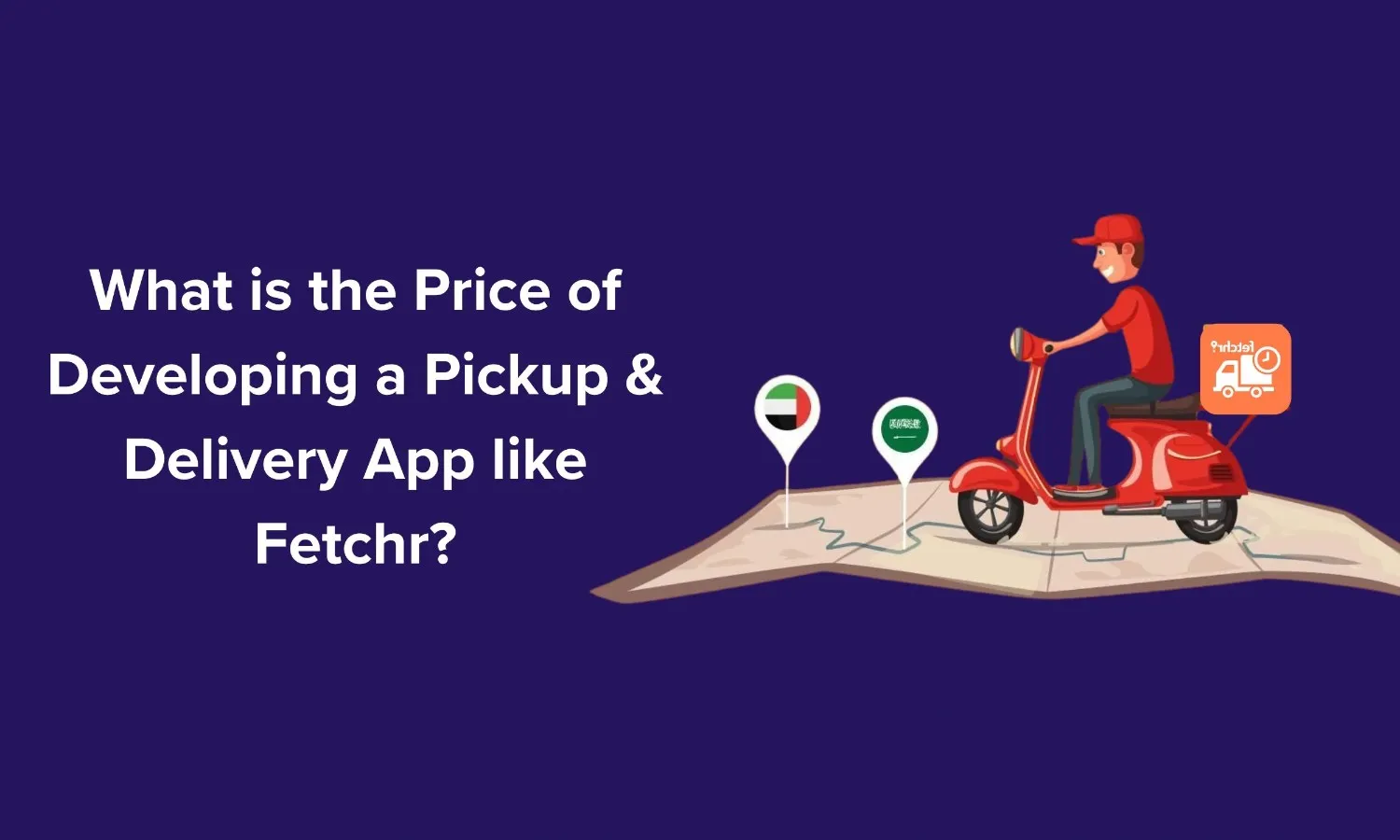
What is the Price of Developing a Pickup & Delivery App like Fetchr?
What is the Price of Developing a Pickup & Delivery App like Fatchr? Developing a Pickup & Delivery
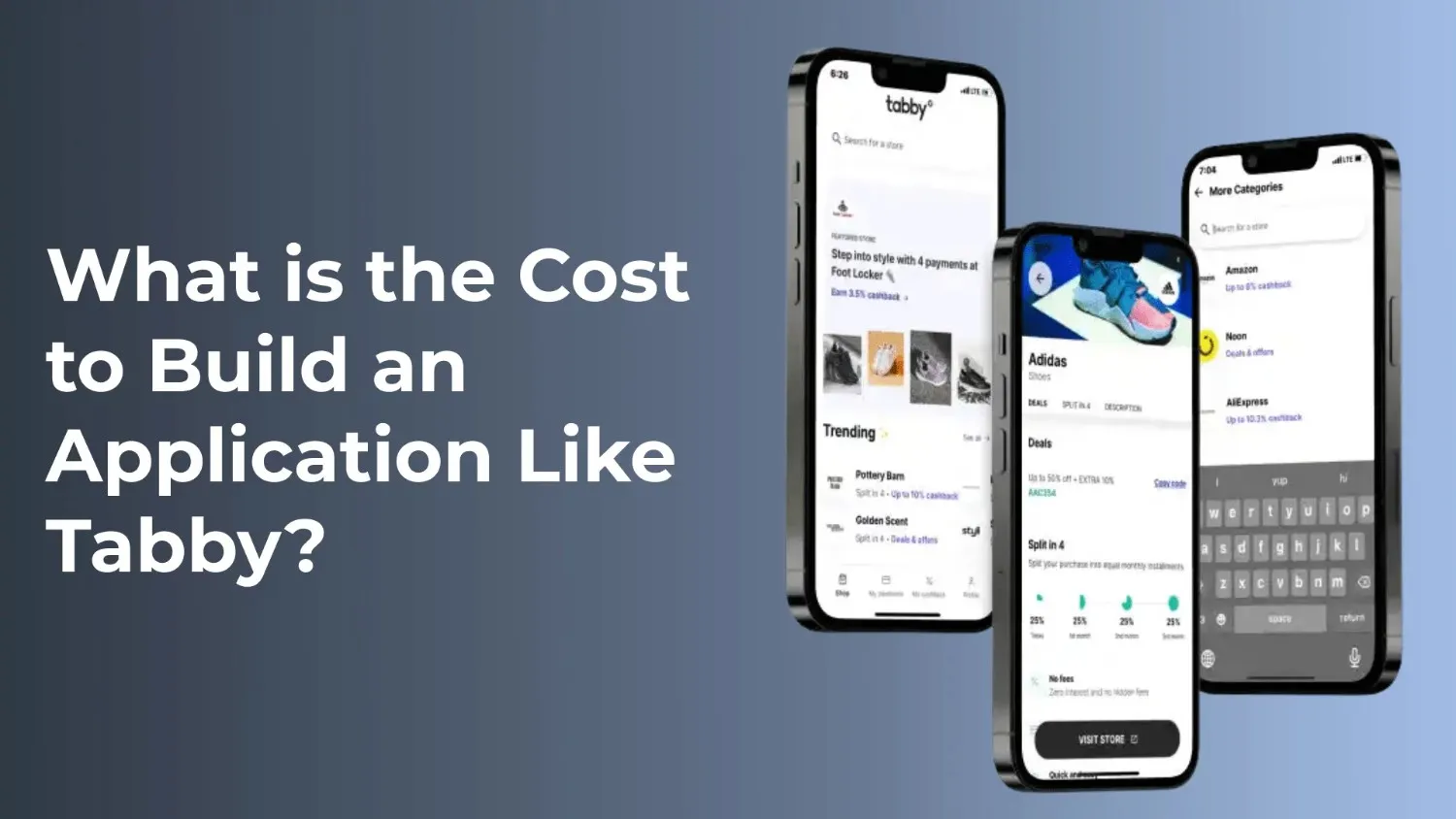
What is the Cost to Build an Application Like Tabby?
Introduction Cost to Build an Application Like Tabby: Tabby is a popular mobile application that has transformed the
4. Enhanced Marketing Strategies
Mobile apps can be used as a marketing tool to promote your business and engage with customers. For example, you can use push notifications to send personalized messages and promotions to your customers. You can also integrate social media into your app, allowing customers to share their experiences with their networks and promote your business.
5. Increased Sales and Revenue
Mobile apps can drive sales and revenue for your business. With a mobile app, customers can make purchases anytime and anywhere, increasing the chances of making a sale. Mobile apps can also provide a platform for upselling and cross-selling products or services.
Partner with a leading game development company today!

6. Competitive Advantage
Having a mobile app can give your business a competitive advantage. It can set you apart from competitors who need a mobile presence. A mobile app can also provide a unique selling point for your business, attracting customers who prefer mobile interactions.
7. Improved Communication and Collaboration
Mobile apps can improve employee communication and collaboration, increasing productivity and efficiency. With a mobile app, employees can easily share information, collaborate on projects, and communicate in real time. This can reduce the need for face-to-face meetings and improve remote working capabilities.
8. Better Customer Service
Mobile apps can provide better customer service by allowing customers to access support and assistance easily. For example, a mobile app can give a chatbot or FAQ section to answer common questions. This can reduce the workload for customer service representatives and improve response times.
9. Cost Savings
Mobile apps can help businesses save costs in several ways. For example, a mobile app can reduce the need for printed marketing materials, such as brochures and flyers. It can also reduce the need for physical infrastructure, such as a store or office space.
Mobile Applications and Their Significance in Digital Transformation
Various disruptive innovations have revolutionized the technology environment and transformed organizations’ operations in the past few decades.
People nowadays may wonder how businesses functioned before email, personal computers, and the internet. We can only imagine a world with a website, smartphone apps, and social media.
Mobile technology is undoubtedly one of the most disruptive technologies to emerge in recent years. Mobile phones and other mobile devices have enabled us to communicate with others from anywhere.
Mobile apps allow organizations to access a bigger audience and provide you with new ways to deliver marketing campaigns. Mobile apps boost organizational productivity, increase sales, enable remote collaboration with all stakeholders, and inform users of policy and strategy changes.
Here are some data that demonstrate how mobile applications might impact your digital transformation strategy:
- Apps account for 57% of digital media usage and traffic.
- Every month, the average mobile phone user installs around 80 applications, of which 40 are commonly used.
- More than 50 times daily, 21% of Millennials use mobile applications.
While the numbers above suggest that mobile app usage is increasing, in the next section, we will examine the critical role of mobile apps in any organization’s digital transformation strategy.
Hire Mobile App Developers for Cost-Effective Solutions!

Conclusion
In conclusion, mobile apps can play a transformative role in your business’s digital transformation journey. They have the power to enhance customer experience, boost productivity, and provide valuable insights through data analytics. Furthermore, mobile apps can improve marketing strategies, drive sales, increase revenue, and provide a competitive edge. They also foster better communication and collaboration, improve customer service, and help reduce operational costs.
Whether you’re working with a Mobile App Development Company or exploring solutions with a Web3 App Development Company, mobile apps offer immense potential. Mobile apps serve as the perfect gateway for businesses aiming to integrate cutting-edge technologies such as Custom Blockchain Development, Enterprise Blockchain Development, or advanced Blockchain Development capabilities like Smart Contract Development. Additionally, Web3 Development Solutions can further accelerate your digital transformation efforts.
Partnering with a Game Development Company or a skilled Game Developer in an industry like gaming can also open new doors for innovation. Lastly, engaging with Blockchain Consulting Services ensures you make informed decisions about implementing mobile apps that best suit your transformation strategy.
If you haven’t already, it’s time to integrate a mobile app into your business plan. This will allow you to capitalize on all these benefits and position your organization for future growth.
FAQs
1. What are some examples of how mobile apps can be used for digital transformation?
Some examples include using mobile apps for sales and marketing, customer service, supply chain management, and workforce management.
2. How can mobile apps improve customer engagement?
Mobile apps can improve customer engagement by providing a convenient and personalized experience. For example, customers can use a mobile app to easily make purchases, track their orders, and receive notifications about promotions or special offers.
3. How can mobile apps streamline internal processes?
Mobile apps can streamline internal processes by providing employees access to data and tools on their mobile devices. For example, a sales team can use a mobile app to manage their leads and customer interactions, while a logistics team can use a mobile app to track shipments and inventory levels.
4. What are some considerations when developing a mobile app for digital transformation?
Some considerations include identifying the business goals for the app, understanding the needs of the target audience, choosing the right technology platform, and ensuring the app is secure and compliant with relevant regulations.
5. How can organizations assess the effectiveness of their mobile app in assisting with digital transformation efforts?
Businesses can measure the success of their mobile app by tracking metrics such as user adoption, engagement, retention, and revenue generated through the app. They can also gather feedback from users to identify areas for improvement.

